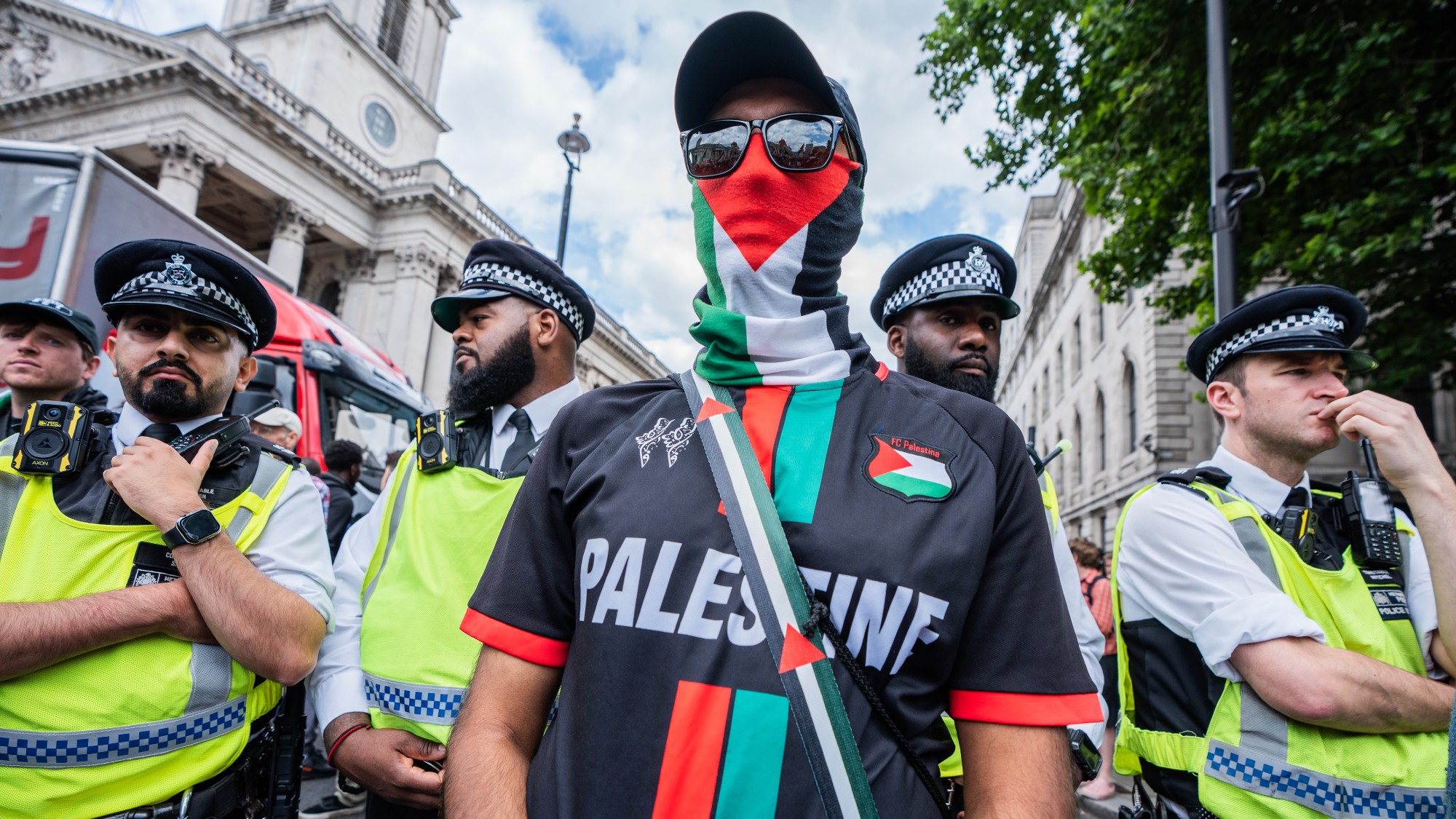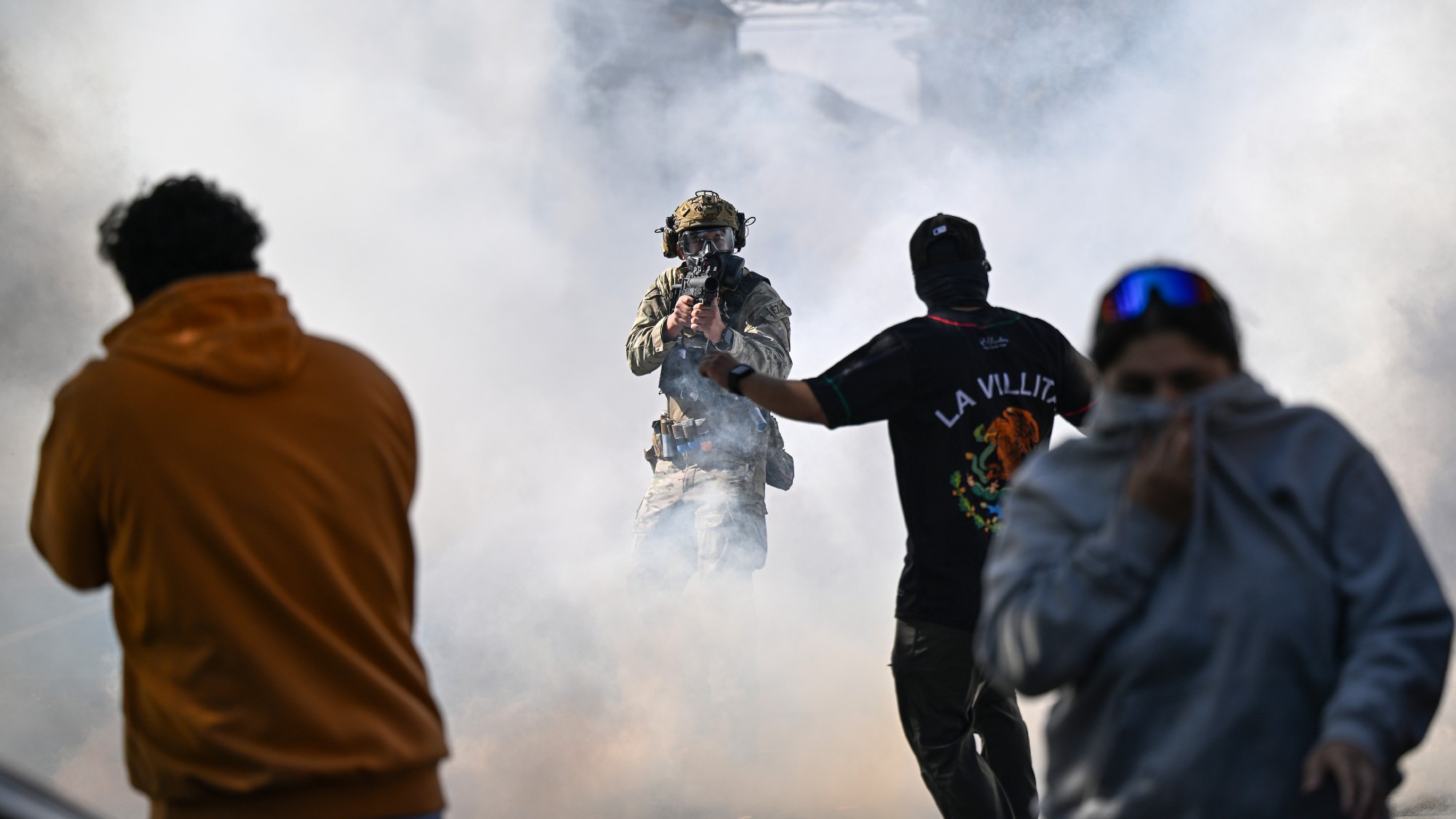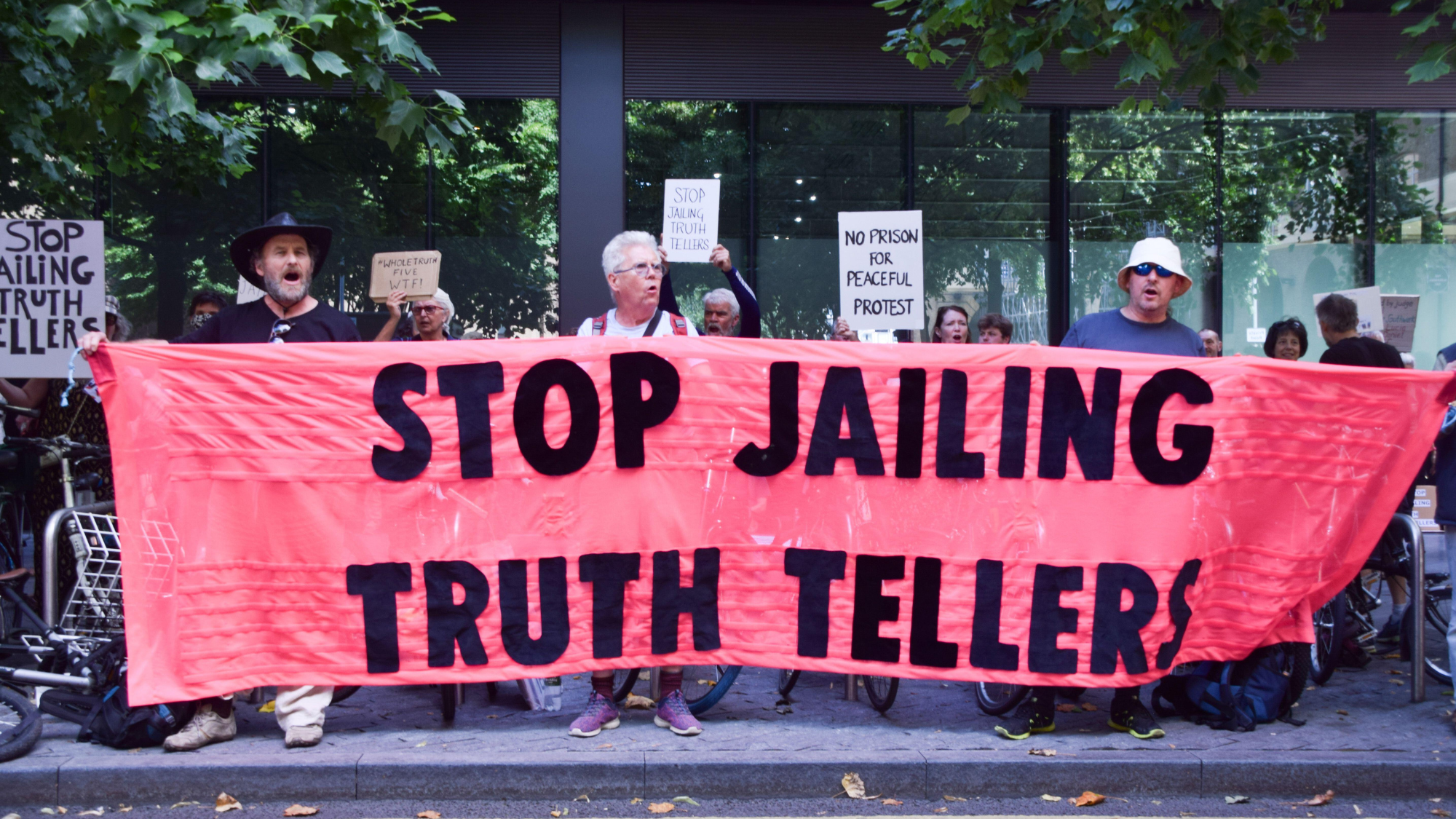Palestine Action: protesters or terrorists?
Damaging RAF equipment at Brize Norton blurs line between activism and sabotage, but proscription is a drastic step

A free daily email with the biggest news stories of the day – and the best features from TheWeek.com
You are now subscribed
Your newsletter sign-up was successful
In the early hours of last Friday, two activists from Palestine Action climbed over a fence into RAF Brize Norton in Oxfordshire, said Dominic Adler on UnHerd. They then filmed themselves riding unimpeded on scooters across the vast airbase – "a critical part of Britain's defence infrastructure" – and vandalising two Voyager air-to-air refuelling tankers. Reportedly, they smashed the aircraft with crowbars and sprayed paint into their engines.
Their aim, they said, was to "disrupt British military support for Israel". But their main achievement was to provoke the normally "glacial" Home Office into rapid action. By Friday evening, Yvette Cooper, the Home Secretary, had let it be known that she planned to proscribe Palestine Action under the Terrorism Act; on Monday, she confirmed that it would be put to a vote in the Commons next week.
In a statement, Cooper said this "disgraceful" attack was just the latest in the long history of Palestine Action's "unacceptable criminal damage". And it's true that the group's tactics have become quite extreme, said Sian Bradley and Charlie Parker in The Times. It was set up in 2020 to take direct action against Elbit Systems, a weapons manufacturer it claims "profits from Israel's war crimes". Back then, its members limited themselves to scaling rooftops and vandalising factories. But since the start of Israel's offensive in Gaza, they have ramped up their actions. Last year, they were accused of assaulting two police officers at Elbit's Bristol site and causing millions of pounds worth of damage.
The Week
Escape your echo chamber. Get the facts behind the news, plus analysis from multiple perspectives.

Sign up for The Week's Free Newsletters
From our morning news briefing to a weekly Good News Newsletter, get the best of The Week delivered directly to your inbox.
From our morning news briefing to a weekly Good News Newsletter, get the best of The Week delivered directly to your inbox.
These extremists are not just hurling soup at paintings, said Tom Harris in The Daily Telegraph. They are sabotaging RAF aircraft and potentially undermining Britain's defence capability. If proscribing the group allows police to deal with this menace more effectively, "so much the better". It's a drastic step, though, said Karl Hansen in Tribune. It would place Palestine Action "in the same legal category as Isis, al-Qa'eda and neo-Nazi gangs", and criminalise anyone who belongs to the group, funds it, or publicly expresses support for it.
Cooper is setting a "dangerous precedent", said The Guardian. If the state can define a non-violent campaign "it disapproves of as terrorism, the boundary between civil disobedience and extremism becomes whatever a minister says it is". Palestine Action has caused a lot of damage, but its tactics do not include "threats to life". The Labour peer Shami Chakrabarti was right to ask: "When did criminal damage become terrorism?"
A free daily email with the biggest news stories of the day – and the best features from TheWeek.com
-
 Local elections 2026: where are they and who is expected to win?
Local elections 2026: where are they and who is expected to win?The Explainer Labour is braced for heavy losses and U-turn on postponing some council elections hasn’t helped the party’s prospects
-
 6 of the world’s most accessible destinations
6 of the world’s most accessible destinationsThe Week Recommends Experience all of Berlin, Singapore and Sydney
-
 How the FCC’s ‘equal time’ rule works
How the FCC’s ‘equal time’ rule worksIn the Spotlight The law is at the heart of the Colbert-CBS conflict
-
 President Trump: ‘waging war’ on Chicago
President Trump: ‘waging war’ on ChicagoTalking Point Federal agents are carrying out ‘increasingly aggressive’ immigration raids – but have sanctuary cities like Chicago brought it on themselves?
-
 Should Britain withdraw from the European Convention on Human Rights?
Should Britain withdraw from the European Convention on Human Rights?Talking Point With calls now coming from Labour grandees as well as Nigel Farage and the Tories, departure from the ECHR 'is starting to feel inevitable'
-
 School disputes: a police matter?
School disputes: a police matter?Talking Point Cowley Hill lodged a police complaint against parents who criticised its recruiting process for a new head
-
 The UK 'spy cops' scandal, explained
The UK 'spy cops' scandal, explainedThe Explainer Undercover police targeting activist groups conducted intrusive surveillance, with some even embarking on relationships under assumed identities
-
 Captain Tom: a tarnished legacy
Captain Tom: a tarnished legacyTalking Point Misuse of foundation funds threatens to make the Moore family a disgrace
-
 Assisted dying: what can we learn from other countries?
Assisted dying: what can we learn from other countries?The Explainer A look at the world's right to die laws as MPs debate Kim Leadbeater's proposed bill
-
 Smoking ban: the return of the nanny state?
Smoking ban: the return of the nanny state?Talking Point Starmer's plan to revive Sunak-era war on tobacco has struck an unsettling chord even with some non-smokers
-
 The Just Stop Oil five: 'fanatics' or victims of anti-protest authoritarianism?
The Just Stop Oil five: 'fanatics' or victims of anti-protest authoritarianism?In the Spotlight Climate protesters handed longest-ever prison sentences for peaceful protest